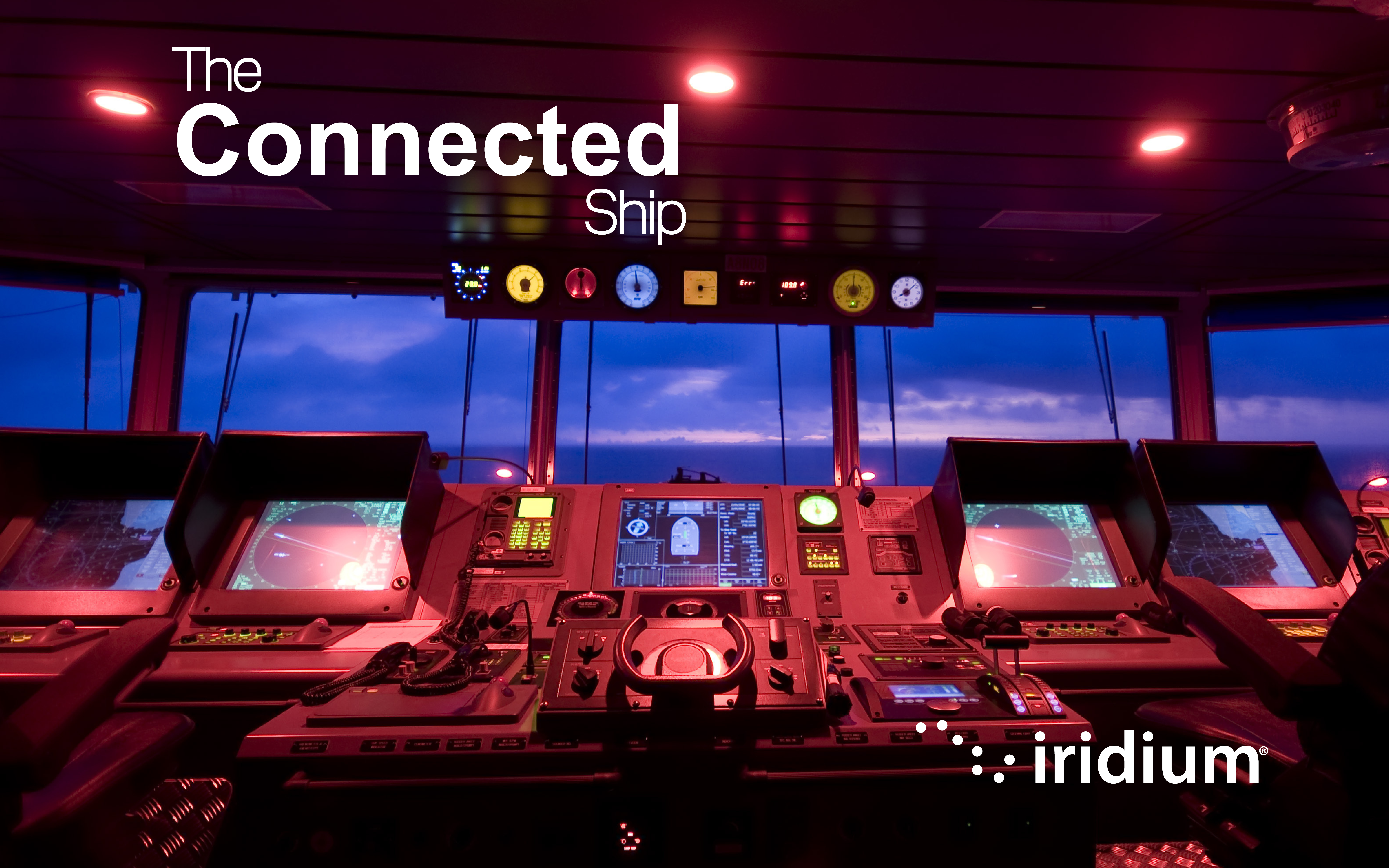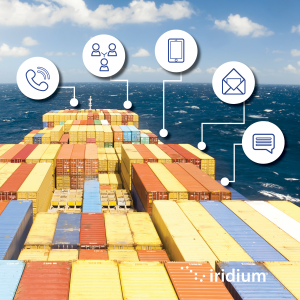Iridium Certus℠ Enables The Connected Ship

 Guest Blogger: Dan Rooney, Director of Maritime Business
Guest Blogger: Dan Rooney, Director of Maritime Business
Since humans learned to master the oceans, we have always sought to perfect our sea-going vessels. Each generation improved the method used for motion, be it via sail, engine or electric propulsion. In our modern world, technology touches almost every element of our lives, which also affects the maritime world. A large modern commercial ship has a staggering amount of machinery and electronics systems on-board, each with different maintenance and monitoring requirements. If these systems are not monitored and maintained, not only do they become a safety risk, but their efficiency decreases: thus the cost of operating them increases. Ship management costs have steadily increased year over year; conversely, chartering rates for vessels continue to be extremely volatile.
Naturally, ship owners and managers turn towards technology to reduce costs, improve efficiency and make vessels smarter. One high-profile target for reducing costs is fuel consumption. Fuel for a ship can be up to 60% of its annual operating costs, and even a single digit reduction can be significant. Cost reductions can be achieved by monitoring fuel consumption, with the usage data recorded on board and fed back to big-data systems ashore. The performance of a vessel over time can be modelled against its ‘digital-twin’, providing alerts to vessel performance analysts if anomalies are detected. In short, it provides advance notification that the ship’s performance is not optimal, potentially leading to increased costs or failed equipment and cutting that thin line of profit even thinner. Having an optimised communications solution becomes the artery for the transfer of performance data ashore, allowing operators to implement solutions and providing a tangible return on investment especially when combined with Vessel Performance Optimisation (VPO) systems.
 Moving away from the Engine Room, maritime electronics and machinery manufacturers have provided network connectivity options for their equipment for several years. This connectivity delivers operational and performance data to both engineers on board and VPO systems ashore. This new model of connecting vessels goes beyond the traditional business and crew IT networks, allowing for Operational Technology (OT) equipment to be connected. For example, shipping containers can now be tracked and their contents monitored. Cargo inside a hold can be remotely monitored, ensuring that the conditions inside are optimal. Providing remote access to cargo/container monitoring systems can reduce a charterer’s claims for damaged cargoes. This in turn can lead to a reduction in insurance costs for a ship.
Moving away from the Engine Room, maritime electronics and machinery manufacturers have provided network connectivity options for their equipment for several years. This connectivity delivers operational and performance data to both engineers on board and VPO systems ashore. This new model of connecting vessels goes beyond the traditional business and crew IT networks, allowing for Operational Technology (OT) equipment to be connected. For example, shipping containers can now be tracked and their contents monitored. Cargo inside a hold can be remotely monitored, ensuring that the conditions inside are optimal. Providing remote access to cargo/container monitoring systems can reduce a charterer’s claims for damaged cargoes. This in turn can lead to a reduction in insurance costs for a ship.
The concept of the ‘Connected Ship’ is now a reality, but how can Iridium Certus provide greater value? A reliable satellite connection that operates globally is the key to delivering performance or cargo monitoring data on time. Iridium Certus provides dependable global performance at speeds debuting at 352 kbps, with expected upgrades of up to 704 kbps later in 2019. VSAT equipped vessels can suffer with slow data rates, due to high demand from crew users. Our Iridium Certus companion service can mitigate these constraints, delivering performance and cargo data alongside the primary VSAT terminal and allowing a ship’s critical business to continue 24/7.
The Iridium Connected Ship concept enables the OT revolution on-board a vessel, delivering connectivity either as a primary satellite system (Iridium Certus for primary communications); or as part of a hybrid communications system (Iridium Certus as VSAT Companion).
Learn more about Iridium Certus at www.IridiumCertus.com.

